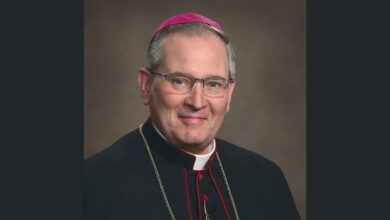Ortega dictatorship in Nicaragua freezes bank accounts, assets of Jesuit university
 Cathedral of Our Lady of the Rosary, Diocese of Estelí, Nicaragua. / Credit: Visit Nicaragua, official portal of the Marca País (Nicaragua)
Cathedral of Our Lady of the Rosary, Diocese of Estelí, Nicaragua. / Credit: Visit Nicaragua, official portal of the Marca País (Nicaragua) ACI Prensa Staff, Aug 14, 2023 / 08:53 am (CNA).
The dictatorship of President Daniel Ortega and his wife, Vice President Rosario Murillo, in Nicaragua froze the bank accounts and assets of the Central American University (UCA), run by the Society of Jesus, a move that has been condemned by a bishop and multiple organizations.
“As a former student of the Central American University of Managua, I repudiate the aggression of the dictatorship against this center of studies,” the auxiliary bishop of Managua, Nicaragua, Silvio Báez, wrote Aug. 10 on his personal X (formerly Twitter) account.
The prelate, living in exile in the United States since April 2019 due to persecution by the dictatorship, stated that “the freezing of accounts is an outrage against higher education, intellectual freedom, culture, and the whole of society.”
Sources connected with the university told the Nicaraguan newspaper El Confidencial that the regime has blocked the university from making any kind of real estate transactions.
This action follows what happened two days before on Aug. 9 when it came out that the Ortega government had frozen the UCA bank accounts, according to various local sources.
So far, the authorities of that educational institution have not issued an official statement.
El Confidencial revealed on Aug. 10 an email sent by the UCA to the university community stating that it is going through “adverse situations” and at the same time is working to solve the problems that prevent them from carrying out banking operations.
Regarding the freezing of its assets, the Nicaraguan media outlet Divergentes reported Thursday that the UCA was not notified of this action and that it may have stemmed from a request from the attorney general’s office, the body in charge of representing the state in legal matters.
Divergentes’ source, close to the university, reported that the Jesuit officials “realized that all their real estate had been frozen when they were going to make some property transactions.” The source also hinted that in the near future, the UCA could be confiscated by the government in its entirety.
There is currently no information available on possible police investigations to support the decision to freeze the university’s bank accounts and block its assets.
Opposition organizations condemn the move
After confirming that UCA’s accounts and assets had been frozen, six student movements in the Central American country condemned what they consider an “outrage” and “a direct attack on education and intellectual freedom.”
“It is alarming and reprehensible that the Sandinista dictatorship has frozen the bank accounts of the UCA as well as the accounts of the members of the university council and of some directors. These unfounded actions, based on alleged charges of money laundering and the financing of terrorists, lack foundation and are part of a strategy to stifle dissent and silence critical voices,” charged the organizations that signed the statement posted Aug. 10 on the social media site X.
“We demand the immediate lifting of the freezing of the bank accounts of the UCA and of all affected members,” the student organizations stated.
The group of 222 Nicaraguans who were deported to the United States by the dictatorship in February has also spoken out. In an Aug. 10 statement posted on X, this community described the government’s action as “arbitrary and illegal.”
“We denounce this new violation of article 125 of the Political Constitution of the Republic of Nicaragua, which enshrines the protection of the rights of university educational communities and other centers of higher technical education.”
Likewise, the critics affirmed that this measure against the UCA is part of a process of undermining the independence of the universities, which has been underway since 2007 under the Ortega government and “which intensified beginning in 2018 with the confiscation of private universities.”
Felix Maradiaga, a former Nicaraguan political prisoner and former presidential candidate, said in an X video message that “independent educational institutions have been the main threats to the prevailing tyrannies in every era” and that “is the reason why the Ortega-Murillo dictatorship has launched an attack against the UCA.”
Another pronouncement came from the Monteverde Process, a political opposition group whose members fled the country or were forcefully exiled. In an Aug. 9 press release posted on X, they expressed their solidarity with the UCA and denounced the “government repression.”
The group described the banking and real estate freeze as “revenge for the university’s commitment to denounce the murders perpetrated by the regime since 2018, as well as for its courageous work in the defense of human rights and its contribution in the search for a peaceful and democratic solution in the face of repression and the political conflict that Nicaragua has been experiencing for more than five years.”
Likewise, its members recalled that the repression “against the UCA has been manifested since 2007, with the progressive reduction of the budget which by a regulation in the constitution, the universities in Nicaragua must receive.”
“The repression against education, culture, and critical thinking in Nicaragua has been reflected in the cancellation of more than 30 universities by the Ortega and Murillo dictatorship until the present year 2023,” they charged.
About the Central American University
Established in 1960 by the Society of Jesus, the UCA is the first private university in Nicaragua. Throughout its history, it has taught more than 12 generations of professionals and was home to opposition to the dynastic Somoza dictatorship until the dictatorship’s demise in 1979. It also contributed to the process of returning to democracy in the 1990s and denounced the injustices and repression during the anti-government protests in Nicaragua in 2018, in which at least 300 people lost their lives.
This story was first published by ACI Prensa, CNA’s Spanish-language news partner. It has been translated and adapted by CNA.






